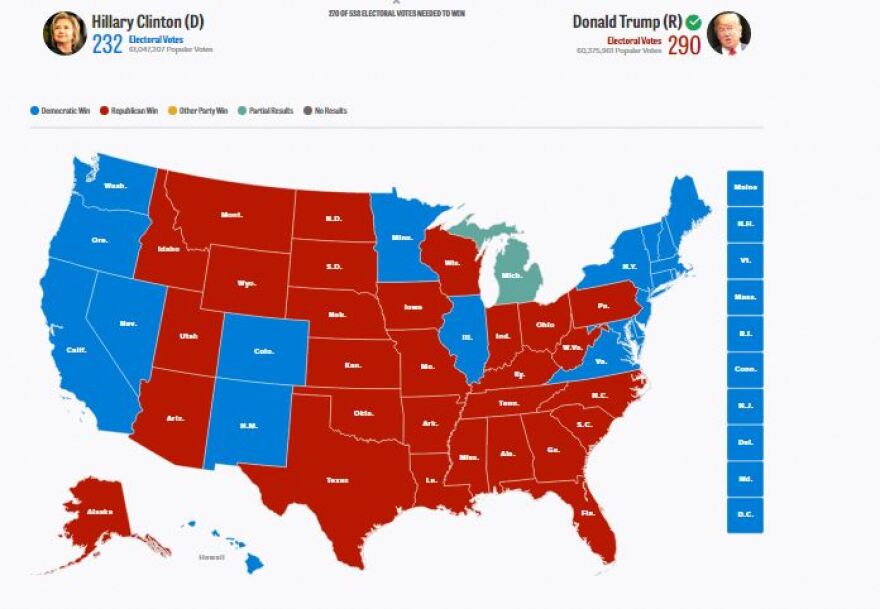Republican President-Elect Donald Trump won more than the 270 electoral votes needed to put him in the White House. But backers of Democrat Hillary Clinton are questioning whether the Electoral College should change given that she won the popular vote.
It would take a Constitutional amendment to abolish the Electoral College, but some have suggested it, including Donald Trump a few years ago. As for the suggestion that some electors should change their votes based on the popular vote, which now favors Clinton, Josh Eck with the Secretary of State's office says electors in Ohio can't.

“In Ohio, as in many states, the members of the electoral college are actually bound by the popular vote within their state, so the members of the Electoral College that are representing Donald Trump, they were the ones who were elected on Election Day so when they show up for the Electoral College, they’ll be required to vote for Donald Trump.”
About 160 electors in 15 states are not bound by their states’ votes. The Electoral College meets December 19, but most pundits think it’s a long shot that Clinton’s supporters could get enough electors to change their votes to make a difference in the outcome.







